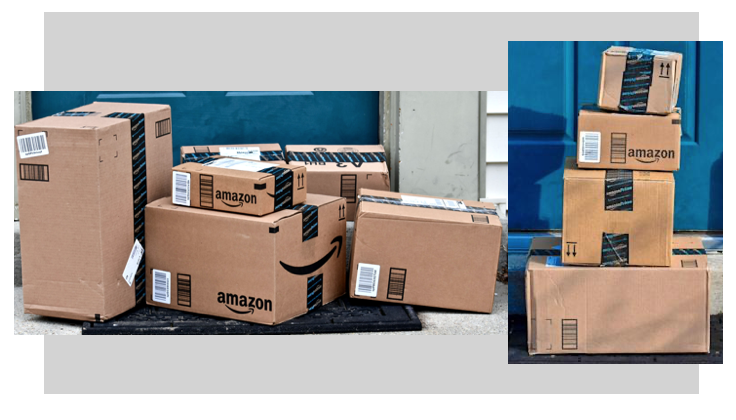CommentsCOMMENTARY - The move by many Angelenos to a more sustainable lifestyle was shaken up by the pandemic.
No more bringing our own bags and reusable containers to stores and take-out restaurants, a plethora of PPE, a dramatic increase in residential garbage as every business that could embraced work-from-home.
Amazon emerged as both a savior in the time of the shut down, and a major contributor to pollution with all their global imports and truck trips, their labor inequality, the drain on the worldwide supply chain, and too much trash with all their packaging in search of a dump…
Why buy?
Why not?
But an addiction to buying, whether or not from Amazon, is symptomatic of chronic unhappiness; a need to fill up what is empty.
Indeed, happiness has far more to do with intangibles such as family, love and self-worth. Too many people since the time of the Romans have been indoctrinated into equating excess with success, but more things will never fill that emptiness.
Wonks who study such things have proven that money can’t buy happiness.
There is an extended bell curve with a very long tail that shows a steep rise tracking the fulfillment of basic physical needs which can be bought – housing, warmth, food, health, basic education and transportation.
This is followed by an easing of the grade representing the increase in quality those material goods and services and then a tapering off and a precipitous descent that tails off into the stratosphere of the centi-billionaires.
There are always the outliers, people who through some quirk of nature or nurture will never feel happy and others who are so devoted to the happiness of others that their own wealth doesn’t matter. But they are mere blips in the statistical data.
Jeff Bezos has made out like a bandit during the pandemic with his net worth including his 16.3% stake in Amazon stock, increasing by 75% to a total of $197.6 billion as of the beginning of February.
These are numbers bigger than the entire economies of medium-sized countries.
Having already attained such a level of wealth, it might be difficult if not impossible for Jeff to embrace the aphorism of the ancient Greeks: Moderation in all things. But there are a lot of steps he could take to mitigate the impact of his level of inequality.
Perhaps he could use some of these insane profits to don the mantle of a responsible corporate citizen, starting with paying his employees a living wage and treating them as human beings, not robots.
And then he should take a serious look at reusable shipping containers using the milk bottle model from the childhoods of many older Americans.
To reduce Amazon’s carbon footprint, how about investing more locally – smaller depots in more neighborhoods providing local jobs and benefiting local businesses.
Add in big discounts for locally sourced products which have built-in shipping and storage savings. To win over the community these discounts should go to the buyers, not the investors. The investors will gain by increasing customer desire to do business with a company that values people and planet.
We hear a lot about the carbon cost of home delivery but having one vehicle deliver packages to fifty local houses makes more sense than fifty cars driving to a depot to pick up those packages, and it creates a local job. It can be further off-set by expanding Amazon days and make deliveries weekly so one drive covers five neighborhoods
How much instant gratification do we need? And with these feel-good improvements, who will miss Amazon Prime Day, a loss leader like Cyber Monday and Black Friday, that adds stress all down the supply chain.
Does anyone have an e-mail for Jeff Bezos?
Because, if Amazon and Bezos do not become part of the solution, it and he will continue to be an excessive part of the problem.
(Liz Amsden is an activist from Northeast Los Angeles with opinions on much of what goes on in our lives. She has written extensively on the City's budget and services as well as her many other interests and passions. In her real life she works on budgets for film and television where fiction can rarely be as strange as the truth of living in today's world.)






